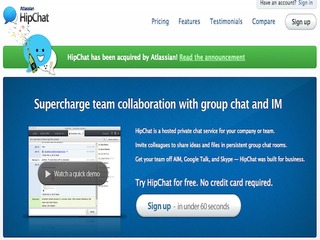How does Ginkgo Bioworks make money?
Ginkgo makes the majority of its money from the sale of its end-to-end COVID-19 testing services
Read more... When it went public in December, Australian enterprise software company Atlassian delivered one of the strongest showings among tech IPOs in 2015. Maybe that’s not saying much considering the low bar set last year, but it’s still impressive considering just how rude an awakening the market has traditionally been for tech companies.
When it went public in December, Australian enterprise software company Atlassian delivered one of the strongest showings among tech IPOs in 2015. Maybe that’s not saying much considering the low bar set last year, but it’s still impressive considering just how rude an awakening the market has traditionally been for tech companies.
When it hit the NASDAQ under ticker symbol TEAM on Thursday, December 10, 2015, the company's shares jumped from a listing price of $21 to end over 30 percent higher at $28. The company sold all shares offered, raising over $531.3 million, and ended its first day with market cap of nearly $6 billion.
Since then, perhaps spooked by the broader financial market decline, shares in Atlassian have dropped significantly, ultimately reaching an all-time low of $16.92 earlier this month.

And yet, just a couple days prior, Atlassian had shared mostly positive results in its first fiscal report as a publicly traded company. The company’s revenues increased 45 percent from $75.8 million (in the second fiscal quarter of 2015 ending December 31) to $109.7 million (for the second quarter of fiscal 2016). Total customer count grew by 27 percent from an “active subscription or maintenance agreement” to 54,262.
So how does Atlassian make money? Like most enterprise software companies: by selling software to the enterprise. Yet Atlassian is unique among its enterprise B2B peers by shirking from employing a traditional salesforce. The company doesn't have a sales team at all, and says it spends the bare minimum on sales and marketing so that it can focus on research and development.
The idea is that if the product is good enough, the customers will come.
Also unusual for an enterprise software company, Atlassian is transparent about its pricing on the website. What follows are prices for Atlassian’s various products when you let them handle the hosting.
JIRA Software, the company's flagship development tool, is priced as follows:
Confluence, the company’s documentation collaboration product, is slightly less expensive:
Bitbucket, a collaborative hosting service for Git projects, is even less expensive:
JIRA Service Desk, the company's collaborative IT service software, has two offerings:
HipChat, the internal chatting service acquired by Atlassian in 2012, comes in two offerings—each for an unlimited number of users:
In addition to the above, Atlassian also offers several other products, including JIRA Core, SourceTree, Bamboo, Clover, FishEye, and Crucible. Furthermore, all of these products are available for larger organizations to install on their own servers for even more massive teams. For example, the company’s flagship offering JIRA Software is available to enterprise teams of over 50,000 users for $450,000 per year.
Atlassian counts Facebook, NASA, Cisco, eBay, LinkedIn, Toyota, and Kaiser Permanente among its clients today.
Ginkgo makes the majority of its money from the sale of its end-to-end COVID-19 testing services
Read more...GE Healthcare, which went public after spinning-off, makes most of its revenue from imaging products
Read more...The company makes most of its money through the sale of its Health Monitoring System
Read more...